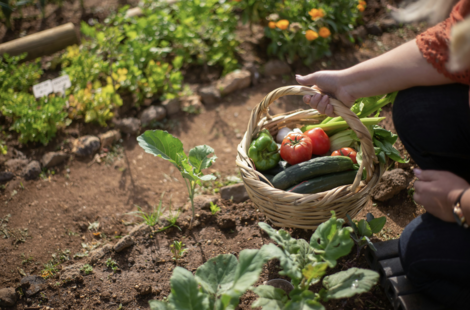The current Nutrition 2025 trend report from Germany is seen as positive. At the same time, the rising number of diet-related illnesses worldwide points in a different direction. This raises the question of the extent to which the aforementioned trends and current developments coincide. The Planetary Health Diet as a sustainable form of nutrition serves the health of all, including the entire earth. This is exactly what we need to be able to live healthily and sustainably in the future. Some points in the trend report point in this direction, which gives us hope.
The "Nutrition Trend Report" [1] was published in Germany at the beginning of the year. The "Nutrition Hub" network surveyed 199 experts from science and practice for their assessment of the population's dietary behaviour and eating habits. According to the results, the development of nutrition as one of the central fields of action with regard to health and climate protection looks positive. The two can only be considered together: climate change has a particularly negative impact on people's health. As food choices influence the climate, nutrition is an important factor for health and sustainable development as a whole.
Plant-orientated and flexitarian nutrition, i.e. a predominantly vegetarian diet, ranked first among the ten trends identified. At the same time, a climate-friendly and sustainable diet took third place in the survey. A natural diet based on unprocessed, preferably organic food came in eighth place. If you include the trend towards eating foods that have a positive effect on the gut microbiome, which is in fifth place, there are four out of ten trends that support health with healthy foods and also describe sustainable enjoyment with a clear conscience.
These trends basically reflect the goals of the Planetary Health Diet [2]. The strategy developed by the EAT-Lancet Commission strives for a diet and food production that would enable everyone to eat sustainably and healthily by 2050. To achieve this, the consumption of fruit and vegetables, pulses and nuts would have to be roughly doubled. In contrast, the consumption of meat and sugar would have to be halved. At the same time, food production should be improved in favour of organic farming and food waste should be greatly reduced. This approach makes it clear that health for all living beings, including the earth, is only possible if everyone works together and develops together and with mutual respect. This would prevent the spread of diet-related diseases and the production of so many highly processed foods, which according to last year's World Health Report are among the four leading causes of death worldwide [3]. Climate change and other major human crises such as dwindling soil fertility and biodiversity would also be mitigated.
This gives hope, because a nutritional trend describes changes in the eating behaviour of a larger group of people that gain popularity over a longer period of time. There is therefore a chance that these trends will become apparent worldwide. If the trends lead to real action, there can be sustainable development. However, there are still some facts that show the opposite. Thus, for example, the trend towards increasing meat consumption in Germany, which has a negative impact on the carbon footprint. The number of obese people is also continuing to rise worldwide. As a result, more and more people are suffering from type 2 diabetes or cardiovascular diseases.
Interestingly, the trend report also mentions personalised nutrition as the second most popular trend. This is based on an algorithm that analyses a large amount of personal information. There is a strong dependence on electronic technology, including artificial intelligence. Technical innovations and new services are defining nutritional behaviour and the daily diet. For example, blood glucose meters, which were actually developed for people with diabetes, are used because they supposedly allow people to optimise their own health in a self-determined way. But instead of deciding for yourself what is good for you, you hand over responsibility. Is checking your blood sugar level with a measuring device without medical necessity really a sign of self-determined, healthy eating behaviour? Personalised nutrition also places an extreme focus on your own needs; everything revolves around your own personal requirements. This encourages a strong focus on one's own "ego".
Yet the exact opposite is important when considering the global health of people and the planet. We need to realise that there is only one health, and that is when everyone involved is healthy – One Health. We need to broaden our perspective and relate respectfully not only to ourselves, but also to our fellow human beings, animals, plants and the earth. This should be the number one trend in the future.
Bibliography
[1] Nutrition Hub (2025): "Nutrition Trend Report 2025: It will be healthy, flexible and self-determined", accessed on 12/04/2025
[2] World Health Organisation (2024): "Only four industries are responsible for 2.7 million deaths annually in the European Region", WHO https://www.who.int/europe/de/news/item/12-06-2024-just-four-industries-cause-2.7-million-deaths-in-the-european-region-every-year, accessed on 10/04/2025
[3] EAT-Lancet Commission (2019): "Food in the Anthropocene: The EAT-Lancet Commission on healthy diets from sustainable food systems", EAT https://eatforum.org/content/uploads/2019/07/EAT-Lancet_Commission_Summary_Report.pdf, accessed on 25/04/2025
